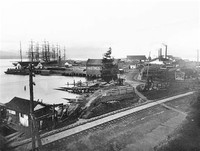Facts about Vancouver

Many immigrants from Hong Kong made Vancouver their home in anticipation of the transfer of that former colony's sovereignty from the United Kingdom to China.

Vancouver also includes three schools that are part of the province-wide Conseil scolaire francophone de la Colombie-Britannique (CSF), the Francophone public school district.

The Port of Vancouver became internationally significant after the completion of the Panama Canal, which reduced freight rates in the 1920s and made it viable to ship export-bound prairie grain west through Vancouver.
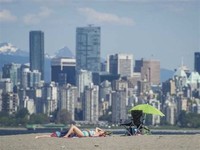
Degree programs in Vancouver's Yaletown neighborhood began in Fall 2007, focusing primarily on international students from the Pacific Rim.

Today, Vancouver has a growing tourism industry, for example, and has become the third-largest film production centre in North America, after Los Angeles and New York City, earning it the nickname "Hollywood North".

Vancouver is a major regional centre for the development of Canadian music.

Vancouver is adjacent to the Strait of Georgia, a body of water that is shielded from the Pacific Ocean by Vancouver Island.

Canada's first general strike occurred following the death of another labor leader, Ginger Goodwin, in 1918, at the Cumberland coal mines on Vancouver Island.

Vancouver has over 1,298 hectares (3,200 acres) of parks, with Stanley Park being the largest at 404 hectares (1,000 acres).

Vancouver has been called a "city of neighbourhoods," each with a distinct character and ethnic mix.
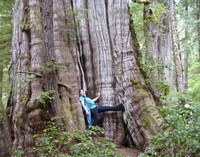
The largest trees in Vancouver's old-growth forest were in the Gastown area, where the first logging occurred, and on the south slopes of False Creek and English Bay, especially around Jericho Beach.

Topping the list of tallest buildings in Vancouver as of June 2006 is One Wall Centre at 150 metres (491 ft) and 48 storeys, followed closely by the Shaw Tower at 149 metres (489 ft) and 41 storeys.

Notable buildings within the city include Christ Church Cathedral, the Hotel Vancouver, the Museum of Anthropology (Arthur Erickson, architect) at the University of British Columbia, and the Vancouver Art Gallery.

Vancouver Community College and Langara College, along with other colleges in surrounding communities, provide career, trade, and university-transfer programs for Vancouver residents.

Vancouver, unlike other British Columbia municipalities, is incorporated under a unique provincial statute, the Vancouver Charter.
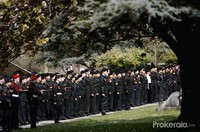
Vancouver is governed by the ten-member Vancouver City Council, a nine-member School Board, and a seven-member Parks Board, all elected for three-year terms through an at-large system.

Vancouver is also the headquarters of forest product and mining companies.

Each are within 30 minutes (driving time) of downtown Vancouver.

Greater Vancouver is the largest metropolitan area in western Canada and the third largest in the country.

Vancouver is served by School District 39 Vancouver, the second largest school district in British Columbia.
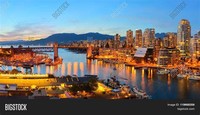
Vancouver is ethnically diverse, with more than half of its residents having a first language other than English.

In 2006, the city of Vancouver had a population of 587,891, while the Greater Vancouver Regional District (GVRD), has a population of 2,180,737.

Vancouver's climate is unusually temperate by Canadian standards; its winters are the fourth warmest of Canadian cities monitored by Environment Canada after nearby Victoria, Nanaimo, and Duncan, all of which are on Vancouver Island.

Certain areas of West Vancouver that have the right soil requirements are home to the Arbutus menziesii tree.
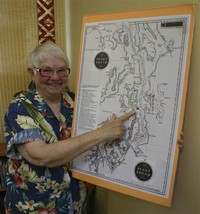
The name, honoring George Vancouver, was chosen by CPR president William Van Horne, who arrived in Port Moody to establish the CPR terminus recommended by Henry John Cambie.

The city of Vancouver is named after Captain George Vancouver, an English explorer.

The CBC Radio Orchestra and the Vancouver Symphony Orchestra are the two professional orchestras based in the city.

Vancouver's large Chinese population has a significant music scene, which has produced several Cantopop stars.

Vancouver will be the host city for the 2010 Winter Olympics and the 2009 World Police and Fire Games.
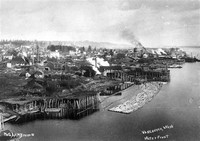
The economy of early Vancouver was dominated by large companies such as the CPR, which had the capital needed for the rapid development of the new city.

The legislation, passed in 1953, supersedes the Vancouver Incorporation Act, 1921 and grants the city more and different powers than other communities possess under BC's Municipalities Act.

Vancouver's "View Protection Guidelines" were approved in 1989 and amended in 1990, establishing view corridors in the downtown with height limits to protect views of the North Shore Mountains.

The Port of Vancouver, Canada's largest and most diversified seaport, does more than C$43 billion in trade with over 90 countries annually.

Another significant international event, the 1986 World Exposition, was held in Vancouver.

Amalgamation with Point Grey and South Vancouver gave the city its final contours not long before taking its place as the third largest metropolis in the country.

In 1986, Greater Vancouver's cultural community created the Alliance for Arts and Culture to provide a strong voice for the sector and an avenue to work together.

Several 2006 studies rank Vancouver as having the least affordable housing in Canada, ranking 13th least affordable in the world, up from 15th in 2005.

The average two-storey home in Vancouver sells for $837,500, compared to $411,456 in Calgary, Alberta, the next most expensive major city in Canada.

Historically, in all levels of government, the more affluent west side of Vancouver has voted along conservative or liberal lines while the eastern side of the city has voted along left-wing lines.

Vancouver is the only major Canadian city where the average daily commute time has shortened in the last ten years, in part due to the residents increasingly choosing to walk or bicycle.

Smaller companies include Touchstone Theatre, Studio 58, Carousel Theatre, and the United Players of Vancouver.

Several Vancouver landmarks date from that period, including the SkyTrain public transit system, the Plaza of Nations, and Canada Place.

Vancouver can be an expensive city, with the highest housing prices in Canada.

Two modern skyscrapers that define the skyline looking south are the city hall and the Centennial Pavilion of Vancouver Hospital, both by Townley and Matheson (1936 and 1958 respectively).
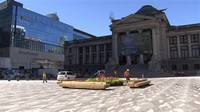
The Vancouver Art Gallery has a permanent collection of over 7,900 items valued at over $100 million and is the home of a significant number of works by Emily Carr.

A diverse collection of plants and trees were imported from other parts of the continent and from points across the Pacific, and can be found growing throughout Vancouver and the Lower Mainland.

The Vancouver Folk Music Festival and the Vancouver International Jazz Festival showcase music in their respective genres from around the world.

Other significant Asian ethnic groups in Vancouver are South Asians (mostly Punjabis, usually referred to as Indo-Canadians), Vietnamese, Filipino, Korean, Cambodian, and Japanese.

Vancouver has an area of 114 square kilometres (44 sq mi), including both flat and hilly ground.

From a settlement of 1,000 people in 1881, Vancouver's population grew to over 20,000 by the turn of the century and 100,000 by 1911.

The Cariboo Gold Rush of 1861 brought 25,000 men, mainly from California, to the mouth of the Fraser River and what would become Vancouver.

The Vancouver Maritime Museum is a nautical museum featuring the St. Roch, the first vessel to sail the Northwest Passage and to circumnavigate North America.

The following table and graph show the population growth of the City of Vancouver (not including Point Grey and South Vancouver before 1929) and the metropolitan area using census data of Statistics Canada.

Mary Ellen Smith, a Vancouver suffragist and prohibitionist, became the first woman elected to a provincial legislature in Canada in 1918.

During the 1898 Klondike Gold Rush, Vancouver merchants sold a great deal of equipment to prospectors.

The Skyline Study concluded that Vancouver's skyline would benefit from the addition of a handful of buildings exceeding current height limits, to add visual interest to Vancouver's skyline.
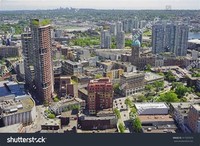
Vancouver is the largest city in the province of British Columbia (B.C.

More recently, Vancouver has had an expansion in high-tech industries, most notably video game design.

Vancouver has daily minimum temperatures falling below 0 °C (32 °F) on an average of 46 days per year and below -10 °C (14 °F) on only two days per year.

Many agree that there is a need for some taller buildings to reflect Vancouver's contemporary image, but others are concerned about proposals for much higher buildings.

Other social movements, such as the first-wave feminist, moral reform, and temperance movements were also influential in Vancouver's development.

The Chinese are by far the largest visible ethnic group in the city, and Vancouver has one of the most diverse Chinese-speaking communities, with several Chinese languages being represented.
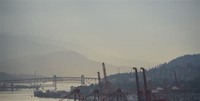
Air quality in the Fraser Valley often suffers as Vancouver's pollution is blown in that direction and "boxed in" by the mountains.

The Vancouver Marathon is held every May, the Vancouver Sun Run (a 10 km race) every April.

The Museum of Anthropology at UBC is a leading museum of Pacific Northwest Coast First Nations culture, and the Vancouver Museum is the largest civic museum in Canada.

Vancouver is renowned for its scenery and has one of the largest urban parks in North America, Stanley Park.

Archaeological records indicate that the presence of Aboriginal peoples in the Vancouver area dates back 4,500–9,000 years.

Vancouver is served by the Lower Mainland's two major public universities, the University of British Columbia (UBC) and Simon Fraser University (SFU).

Over a million people annually pass through Vancouver en route to a cruise ship vacation, usually to Alaska.

Vancouver's population density on the downtown peninsula is 121 people per hectare (or 49 people per acre), according to the 2001 census.

The NPA's Sam Sullivan was elected mayor of Vancouver in November 2005, signaling the party's return to power after a social democratic slate swept the previous election.

The City of Vancouver was incorporated on April 6, 1886, the same year that the first transcontinental train arrived.



